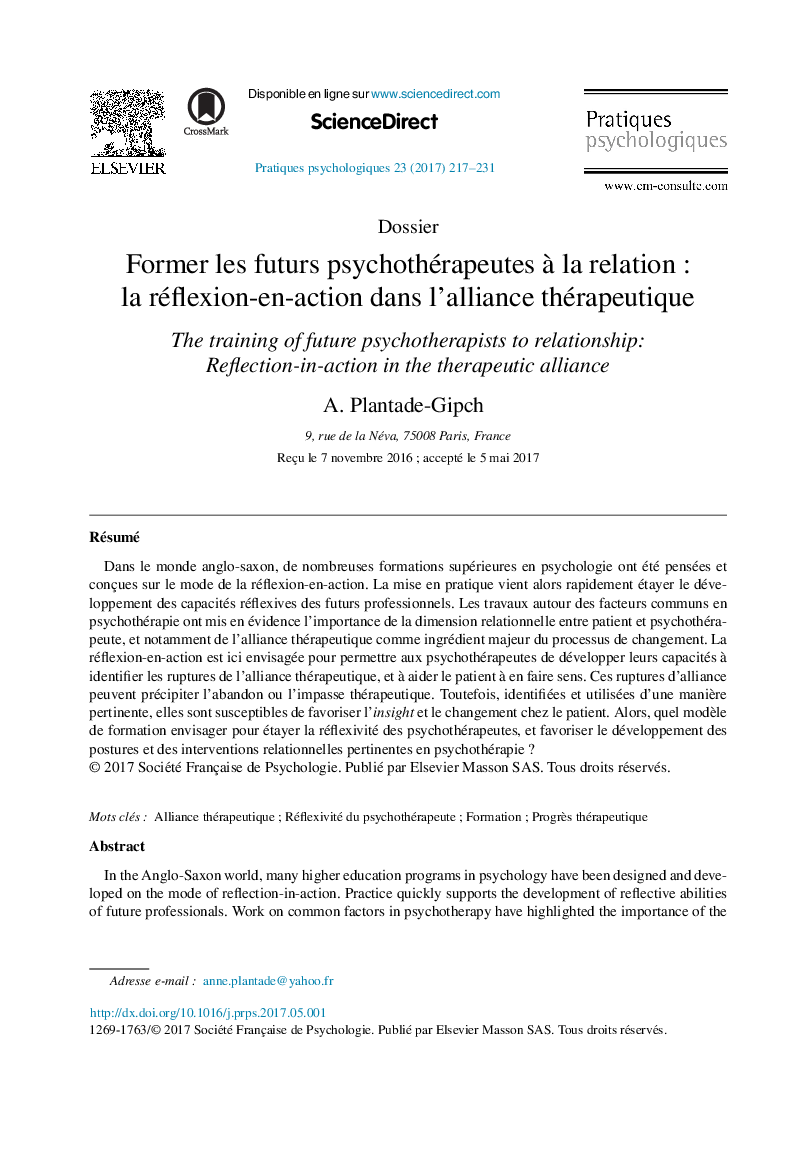| Article ID | Journal | Published Year | Pages | File Type |
|---|---|---|---|---|
| 5036323 | Pratiques Psychologiques | 2017 | 15 Pages |
RésuméDans le monde anglo-saxon, de nombreuses formations supérieures en psychologie ont été pensées et conçues sur le mode de la réflexion-en-action. La mise en pratique vient alors rapidement étayer le développement des capacités réflexives des futurs professionnels. Les travaux autour des facteurs communs en psychothérapie ont mis en évidence l'importance de la dimension relationnelle entre patient et psychothérapeute, et notamment de l'alliance thérapeutique comme ingrédient majeur du processus de changement. La réflexion-en-action est ici envisagée pour permettre aux psychothérapeutes de développer leurs capacités à identifier les ruptures de l'alliance thérapeutique, et à aider le patient à en faire sens. Ces ruptures d'alliance peuvent précipiter l'abandon ou l'impasse thérapeutique. Toutefois, identifiées et utilisées d'une manière pertinente, elles sont susceptibles de favoriser l'insight et le changement chez le patient. Alors, quel modèle de formation envisager pour étayer la réflexivité des psychothérapeutes, et favoriser le développement des postures et des interventions relationnelles pertinentes en psychothérapie ?
In the Anglo-Saxon world, many higher education programs in psychology have been designed and developed on the mode of reflection-in-action. Practice quickly supports the development of reflective abilities of future professionals. Work on common factors in psychotherapy have highlighted the importance of the relational dimension between patient and psychotherapist, including therapeutic alliance as a major ingredient in the change process. Reflection-in-action is here considered to allow psychotherapists to develop their capacity to identify ruptures of the therapeutic alliance, and to help the patient make sense with them. These alliance ruptures can precipitate abandonment or therapeutic impasse. However, identified and used in a relevant way, they are likely to promote insight and change in the patient. What training model should be then considered to support psychotherapists' reflexivity, and to promote the development of relevant postures and relational interventions in psychotherapy?
